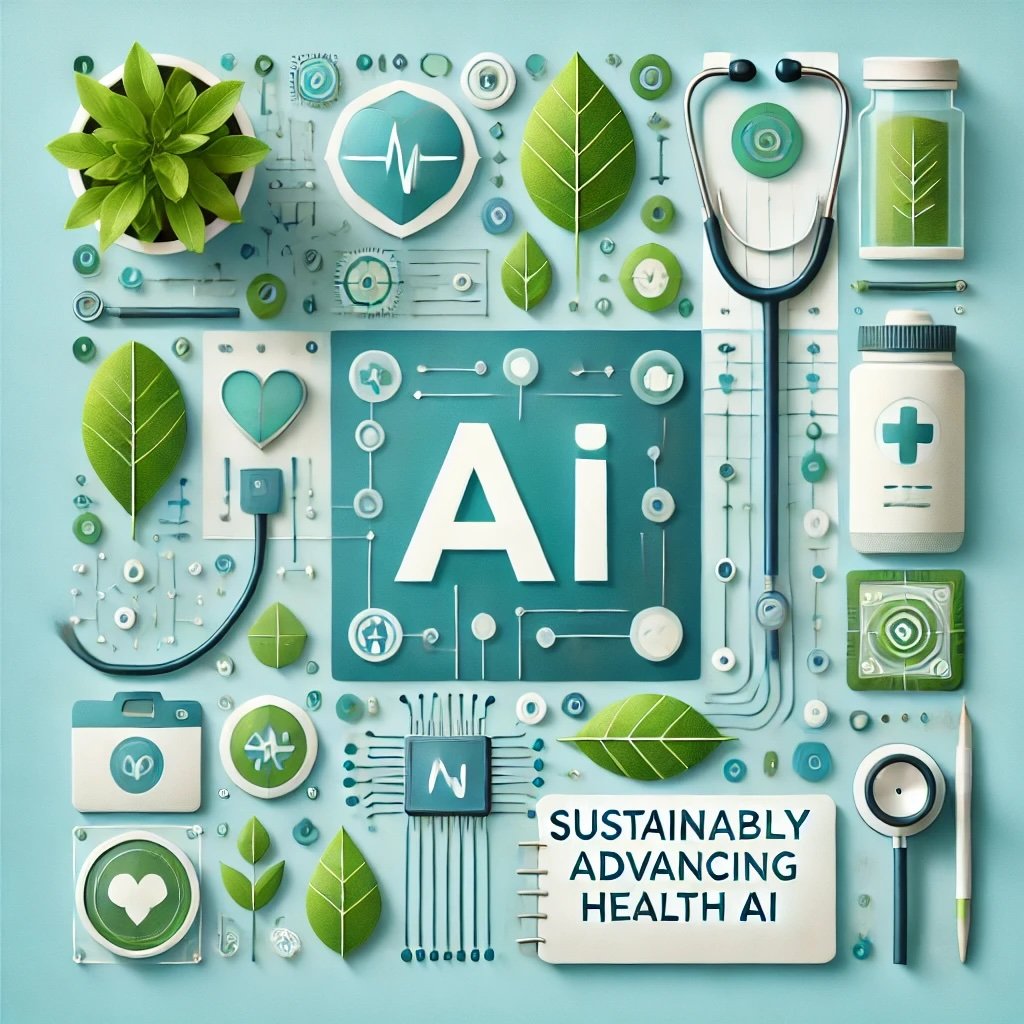Sustainably Advancing Health AI | 7/21/2024
Climate Health Innovators! Embark on a bi-weekly journey where we explore groundbreaking ideas, pivotal news, and exciting opportunities designed for anyone interested in championing climate action in healthcare. If you know someone who would benefit from CHILLing with us — clinicians, builders, or funders — tell them to subscribe here. 📬
In this week’s newsletter, we follow up from the digital dilemma article and discuss balancing the benefits of AI in healthcare with its environmental cost.
The Hidden Footprint of AI in Healthcare: A Call for Sustainable Innovation
As AI continues to be heralded as transformative across various industries, its substantial environmental impact is becoming increasingly magnified. Recent reports have revealed a significant rise in greenhouse gas (GHG) emissions linked to AI operations. For instance, Google’s GHG emissions have surged by 48% over five years, driven largely by AI development. Similarly, Microsoft has reported increased GHG emissions, and OpenAI has faced scrutiny for its significant water usage during model training processes. This growing environmental footprint highlights the urgent need for sustainable practices in AI development and deployment. One ChatGPT query can use 10x the energy as a Google search. Additionally, the energy required to generate images using LLMs can be equivalent to that of charging your phone from 0 to 100%. Understanding these specific impacts in healthcare is still a work in progress, one paper explores AI in radiology and finds that training a specific radiology model is roughly equivalent to the daily carbon footprint of a European citizen. While individually these impacts may seem modest, we are just at the beginning of the AI era and collectively the footprint may be quite large.
The Dual role of AI in sustainability
While AI holds the potential to optimize energy use and support sustainability efforts, it is crucial to acknowledge and mitigate its substantial environmental footprint. Training AI models, particularly large ones, can emit approximately 300,000 kg of CO2 emissions, equivalent to 125 round-trip flights between New York and Beijing. Furthermore, AI model training requires significant water resources for cooling data centers, with estimates indicating that training large models like GPT-3 can use around 700,000 liters of water. This dual role is particularly relevant for healthcare organizations, which are major implementers of AI initiatives and are simultaneously pledging to reduce their environmental impact.
Healthcare organizations unique position to advocate
As healthcare organizations emerge as major adopters of AI, they are poised to shapee industry standards and best practices. Many organizations have also committed to sustainability pledges aimed at reducing their GHG emissions. Balancing these commitments with the increased energy demands of AI presents a unique challenge. Several promising strategies can help. Selecting appropriately sized AI models for specific tasks is crucial for ensuring both energy and cost efficiency, as different models have varying footprints. Additionally, factors such as the choice of hardware and the timing of model execution play a critical role in optimizing energy usage. Some of these methods are highlighted in the table below. Researchers are developing tools to help organizations better understand these factors such as the NSF funded Carbon Connect model for sustainable computing.
Table - High level strategies to consider around the sustainable implementation of AI.
We are working on building a coalition to sustainably advance health AI. Reach out at hello@ourclimatehealth.org if you are interested in learning more.
Other news
Lingering health impacts of heat waves - insights by Lisa Patel link
Emergency helicopters have trouble taking off in extreme heat link
Congrats to CHILL co-founder Katie Lichter and team on their recent carbon footprint study of cancer care published in Lancet Oncology link
CHILL co-founder Chethan Sarabu featured in Medical Society Consortium on Climate & Health link
Report highlights that 1 in 12 hospitals globally are at risk of closing due to climate driven extreme weather link
Events & opportunities
Other events and opportunities in the coming weeks:
New York Climate week September 2024 link


